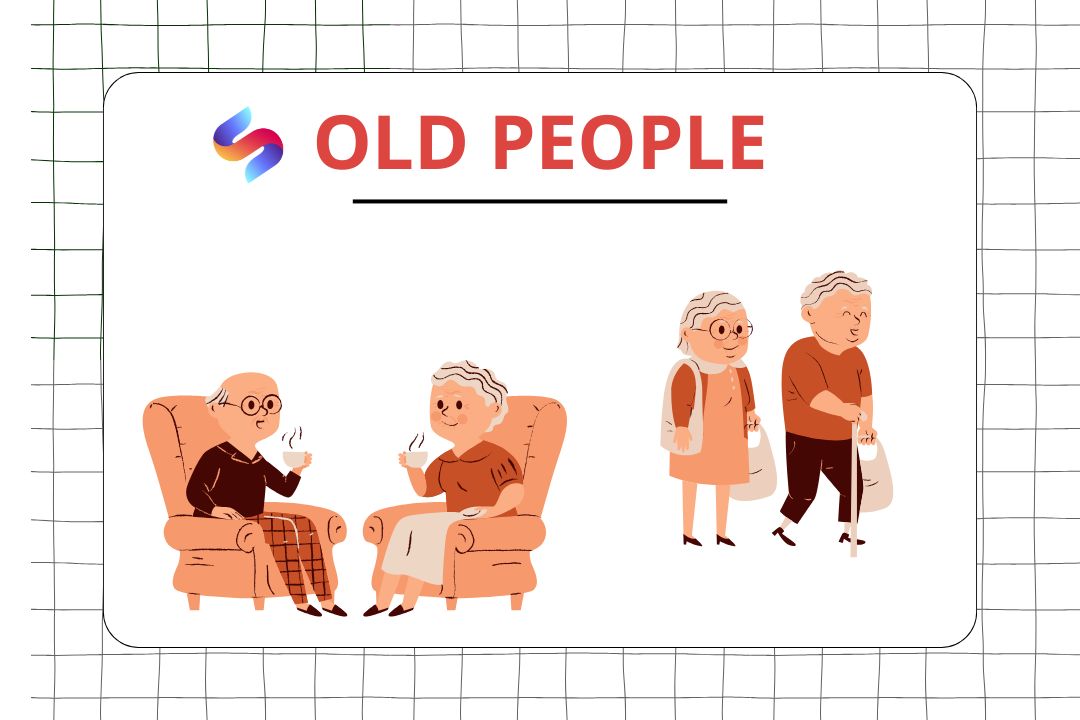Đội ngũ chuyên gia tại Smartcom English là tập hợp những chuyên gia đầu ngành trong lĩnh vực IELTS nói riêng và tiếng Anh nói chung. Với phương pháp giảng dạy sáng tạo, kết hợp với công nghệ AI, chúng tôi mang đến những trải nghiệm học tập độc đáo và hiệu quả. Mục tiêu lớn nhất của Smartcom Team là xây dựng một thế hệ trẻ tự tin, làm chủ ngôn ngữ và sẵn sàng vươn ra thế giới.
tham gia nhóm hỗ trọ
Trong xã hội hiện đại ngày nay, vai trò của người lớn tuổi ngày càng được chú trọng. Họ không chỉ là những người mang lại tri thức và kinh nghiệm quý giá mà còn đóng góp vào sự phát triển bền vững của gia đình và cộng đồng. Việc chăm sóc và giao lưu với người cao tuổi không chỉ giúp duy trì các giá trị văn hóa truyền thống mà còn tạo ra một môi trường gắn kết giữa các thế hệ. Bài viết này sẽ khám phá các khía cạnh khác nhau liên quan đến người lớn tuổi, từ lợi ích của việc có họ sống trong gia đình cho đến những điều mà các thế hệ trẻ có thể học hỏi từ họ.

What are the advantages of having an elderly person at home?
Having an elderly person at home provides numerous benefits for the family. Firstly, they often serve as a source of wisdom, sharing invaluable life experiences and lessons that can guide younger family members. Additionally, their presence fosters a sense of unity and strengthens family bonds, as they bring generations together. Moreover, they can contribute to the emotional well-being of the household, offering support and companionship that can enhance the quality of life for everyone involved.
Từ vựng hữu ích:
- Wisdom /ˈwɪzdəm/ – trí tuệ
- Invaluable life experiences /ɪnˈvæljuəbl – laɪf – ɪkˈspɪəriənsɪz/ – kinh nghiệm sống quý giá
- Foster a sense of unity /ˈfɒstər – ə – sɛns – ʌv -ˈjuːnɪti/ – thúc đẩy sự đoàn kết
- Emotional well-being /ɪˈməʊʃənl -ˈwɛlˌbiːɪŋ/ – sức khỏe tinh thần
Is there anything that older people should learn from the younger generation?
Absolutely, older people can benefit significantly by learning from the younger generation, especially in terms of technology and social media. Familiarity with digital tools can help them stay connected with family and friends, making communication easier and more enjoyable. Furthermore, younger individuals often have fresh perspectives on various issues, including health and lifestyle choices, which can enrich the older generation’s understanding and adaptability to modern life.
Từ vựng hữu ích:
- Familiarity with digital tools /fəˌmɪlɪˈærɪti – wɪð -ˈdɪdʒɪtəl – tuːlz/ – sự quen thuộc với công cụ kỹ thuật số
- Stay connected /steɪ – kəˈnɛktɪd/ – giữ liên lạc
- Fresh perspectives /frɛʃ – pərˈspɛktɪvz/ – quan điểm mới mẻ
- Adaptability /əˌdæp.təˈbɪl.ɪ.ti/ – khả năng thích ứng
What can the younger generation learn from the older generation?
The younger generation can learn invaluable lessons from their elders, particularly regarding resilience and patience. Older individuals often have a wealth of experiences that illustrate how to cope with challenges and setbacks in life. Additionally, they can impart traditional values, such as respect for family and the importance of community, which can help shape the moral compass of younger people in an increasingly fast-paced world.

Từ vựng hữu ích:
- Resilience /rɪˈzɪl.jəns/ – khả năng phục hồi
- Wealth of experiences /wɛlθ – ʌv – ɪkˈspɪəriənsɪz/ – kho tàng kinh nghiệm
- Impart traditional values /ɪmˈpɑːt – trəˈdɪʃənl -ˈvæljuːz/ – truyền đạt các giá trị truyền thống
- Moral compass /ˈmɔːrəl -ˈkʌm.pəs/ – la bàn đạo đức
What qualities does a person need to take care of older people?
Caring for older people requires a unique set of qualities, including patience, compassion, and strong communication skills. Patience is essential as caregiving can often involve repetitive tasks and moments of frustration. Compassion enables caregivers to understand the emotional and physical challenges faced by the elderly. Additionally, effective communication is crucial to ensure that their needs are met and that they feel valued and respected.
Từ vựng hữu ích:
- Compassion /kəmˈpæʃ.ən/ – lòng thương xót
- Effective communication /ɪˈfektɪv – kəˌmjuː.nɪˈkeɪ.ʃən/ – giao tiếp hiệu quả
- Emotional challenges /ɪˈməʊʃənl -ˈtʃælɪndʒɪz/ – thách thức cảm xúc
- Valued and respected /ˈvæljuːd – ənd – rɪˈspɛktɪd/ – được trân trọng và tôn trọng
Do you think elderly people should be allowed to work?
Yes, elderly people should be allowed to work, provided they are physically and mentally fit to do so. Working can provide them with a sense of purpose and belonging, which is crucial for mental health. Moreover, it allows them to share their wealth of experience with younger colleagues, fostering an environment of mutual respect and learning. However, it’s important to implement flexible working conditions to accommodate their needs and ensure their well-being.
Từ vựng hữu ích:
- Sense of purpose /sɛns – ʌv -ˈpɜːrpəs/ – cảm giác có mục đích
- Mutual respect /ˈmjuːtʃuəl – rɪˈspɛkt/ – tôn trọng lẫn nhau
- Flexible working conditions /ˈflɛksɪbəl -ˈwɜːrkɪŋ – kənˈdɪʃənz/ – điều kiện làm việc linh hoạt
- Well-being /ˈwɛlˌbiːɪŋ/ – sức khỏe, phúc lợi
Như vậy bạn đã vừa ôn luyện xong IELTS Speaking part 3 topic Old People – một chủ đề hay gặp trong phần thi IELTS Speaking. Hy vọng bài viết giúp ích bạn trong việc đưa ra những ý tưởng để nói về chủ đề này! Chúc các bạn thi tốt!
Chinh phục IELTS cần lộ trình đúng và người hướng dẫn giỏi. Smartcom English chính là nơi giúp bạn giải bài toán “nên học IELTS ở đâu” và “chi phí học IELTS bao nhiêu” chỉ trong một quyết định!
Kết nối với mình qua


![[PDF + Audio] Tải Sách IELTS Cambridge 19 (Kèm đáp án)](https://smartcom.vn/blog/wp-content/uploads/2024/06/ielts-cambridge-19_optimized.png)


![[PDF + Audio] Tải Sách IELTS Cambridge 17 (Kèm đáp án)](https://smartcom.vn/blog/wp-content/uploads/2024/07/sach-ielts-cambridge-17_optimized.jpg)

![[PDF + Audio] Tải Sách IELTS Cambridge 15 (Kèm đáp án)](https://smartcom.vn/blog/wp-content/uploads/2024/07/ielts-cambridge-15_optimized.jpg)








